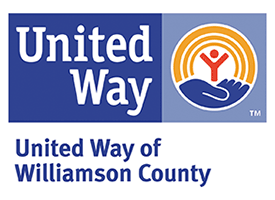Bullying Prevention: Mentors make a difference
October is National Bullying Prevention Month, and groups across the country are coming together to combat bullying and raise awareness about what our kids are facing every day.
Originally launched by PACER’s National Center for Bullying Prevention in 2006, it’s grown into a national movement to not only raise awareness about the effects of bullying, but to also provide educational resources.
Naturally, it made me think of the effects of mentoring — and how our Bigs are, in themselves, a method of bullying prevention.
According to the National Council of Juvenile and Family Court Judges, children without a consistent, positive adult presence are “more likely to develop internalizing problems like depression and externalizing problems such as aggression — placing these youth at greater risk for violence and school failure.”
So what does that mean? It means mentors can help kids develop social and emotional competence, which has a ripple effect. That competence promotes self-confidence and ultimately helps children deal with situations in a healthy way. Children who are bullied could be reluctant to talk to someone for fear of making the situation worse, but their mentor can be a critical outlet.
Let’s also remember that bullies have feelings, too: anxiety, fear, guilt. Whether a child is a victim or a bully, mentors can help by providing growth opportunities, access to new ideas or information, and invaluable friendship. All of those things can change how a young person thinks about him or herself, their education, their relationships – their future.
It is important to be aware that not all bullying yields visible warning signs. It also happens online, often unbeknownst to adults in the child’s personal circle. According to DoSomething.org, nearly 43% of kids have been bullied online and with social media companies frequently changing privacy settings, it’s becoming increasingly important to have an open dialogue about bullying.
You can help spread the word about National Bullying Prevention Month. Here are a few easy ways to do that:
- Talk to your friends and family about National Bullying Prevention Month
- Open or continue a dialogue with a child in your life – whether that be a family member or your Little Brother or Sister
- Share this blog post or information from some of the web sites below
- Last, but certainly not least: If you or someone you know would make a great Big Brother or Sister, tell them they can apply online at BigMentoring.org/Volunteer to start making a difference to a child.
Together, we can help our kids navigate their toughest years… Safely and happily.
Additional Bullying Prevention Resources:
- StopBullying.gov
- Pacer.org
- GirlsHealth.gov
- DoSomething.org
- Anti-Defamation League (http://austin.adl.org/)
- AISD’s ‘Respect for All” campaign (http://www.austinisd.org/respectforall)









